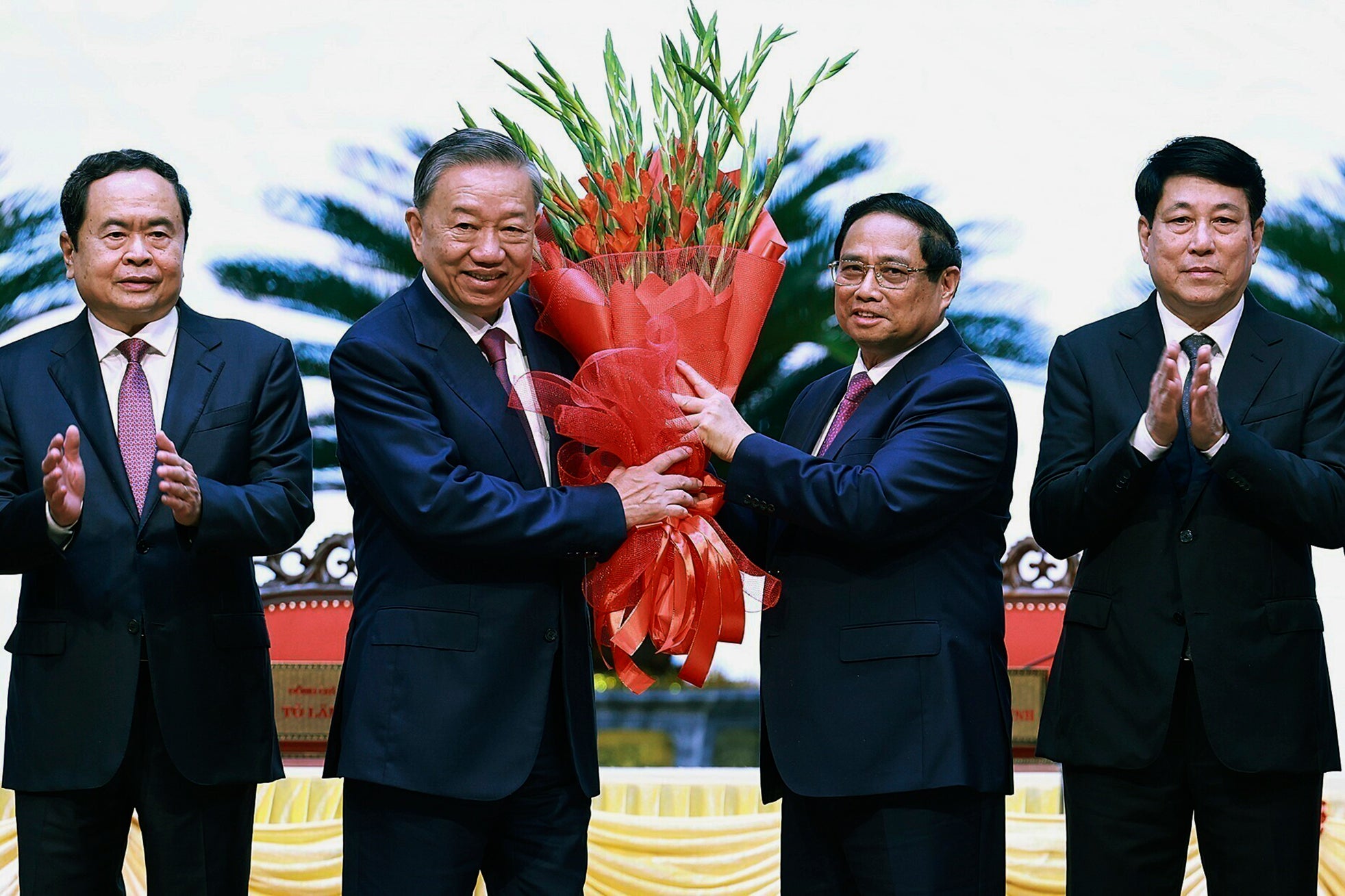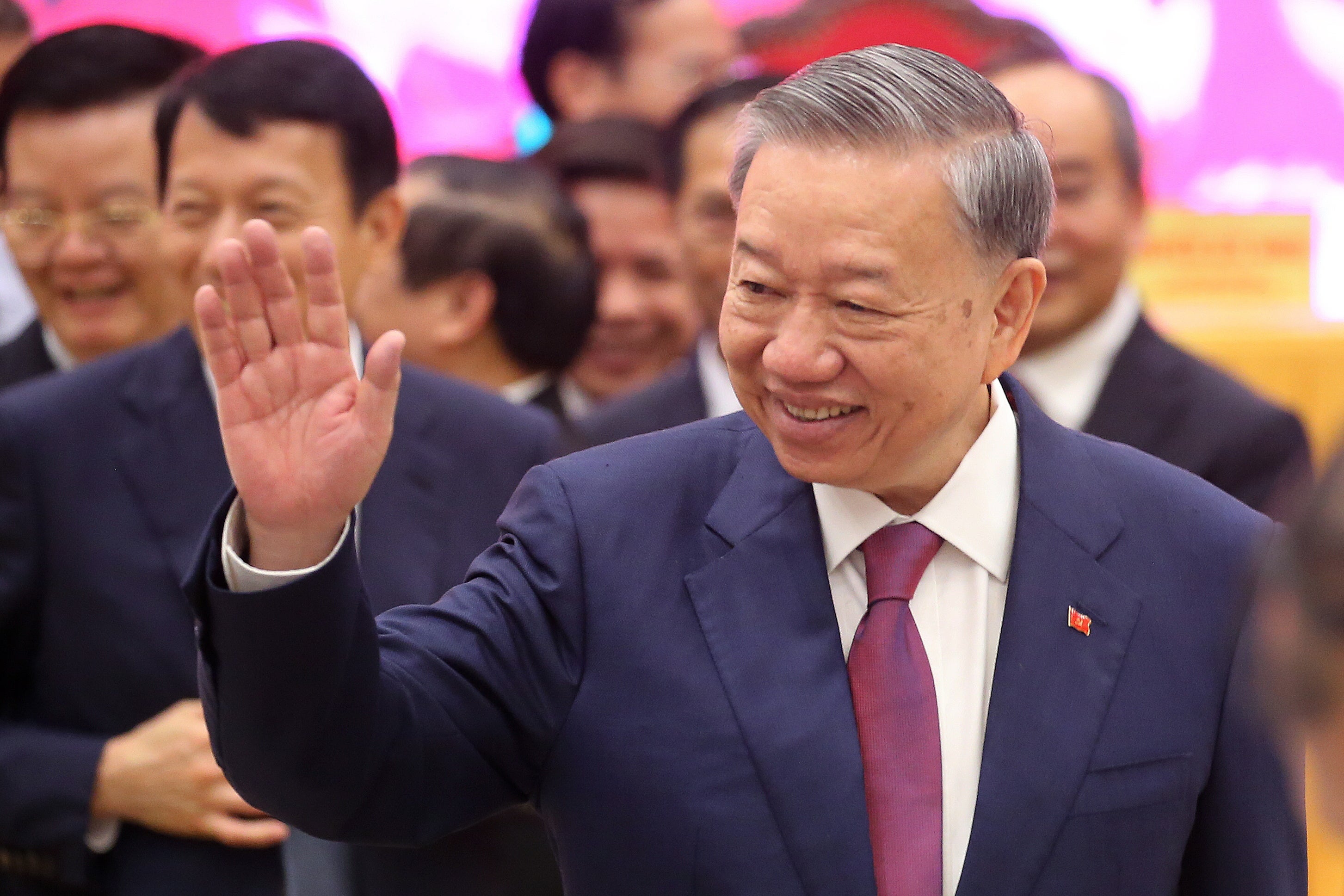Support truly
independent journalism
Our mission is to deliver unbiased, fact-based reporting that holds power to account and exposes the truth.
Whether $5 or $50, every contribution counts.
Support us to deliver journalism without an agenda.

Vietnam’s president To Lam has been named the new chief of the Communist Party following the death of his predecessor two weeks ago.
Mr Lam, 67, had taken over the country’s most powerful political role temporarily on 18 July, a day before the death of previous secretary general Nguyễn Phú Trọng.
The Communist Party on Saturday unanimously supported Mr Lam’s nomination to the top post.
Addressing the delegates in Hanoi, he vowed to inherit and promote his predecessor’s legacy, make no changes to the Southeast Asian nation’s foreign policy, focus on achieving its socio-economic development goals, and continue a campaign against graft.

Trọng dominated Vietnamese politics since he became party chief in 2011 and viewed corruption as the gravest threat facing the party.
“In the coming time, the work on anti-corruption will be continued fiercely,” Mr Lam told the press conference.
“Personally, I feel fortunate that I have much experience in handling anti-graft campaign during the time I worked at the police ministry.”
Mr Lam spent over four decades in the ministry of public security before becoming the minister in 2016. He then led Trọng’s sweeping anti-graft campaign until May, when he became president following the resignation of his predecessor.

The Communist nation has become a major destination for manufacturing investment due to its political stability, but experienced major turbulence in recent months that officials said was fuelled by the anti-graft effort.
It was not immediately clear whether Mr Lam would retain both top jobs until the legislative session ends in 2026, or whether a new president would replace him.
If Mr Lam retains both jobs, that could pave the path for him to adopt a more autocratic leadership style similar to that of Xi Jinping, who is China’s party chief and state president.
It would not, however, be unprecedented. Trọng held both top jobs for nearly three years until April 2021 after the death of a former president.
“It is a sign of a temporary halt of internal fighting within the party,” Nguyen Khac Giang, a Vietnam expert at Singapore think tank the ISEAS-Yusof Ishak Institute.
“Although Lam vowed to push forward the anti-corruption campaign, the campaign may slow down a little as he may prioritise stabilising the party system before the party congress in 2026.”
Officials and diplomats said the party had discussed possibly naming a new president so that Mr Lam could focus on the party chief’s job, Reuters reported.
“In case the plenum ends without naming any new state president to replace Lam, it is a signal of a new chapter for Vietnam,” Mr Giang said.
Mr Xi congratulated Mr Lam on his new role, according to the official Xinhua news agency.
Additional reporting by agencies.

